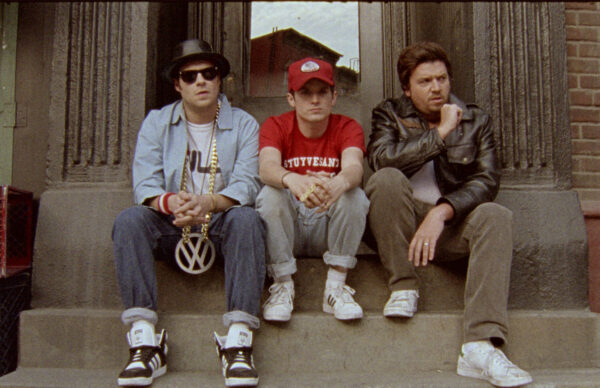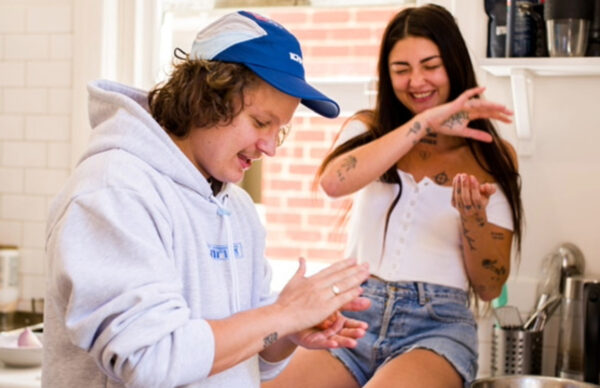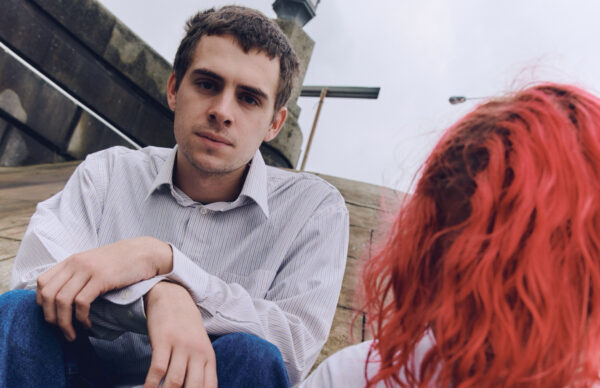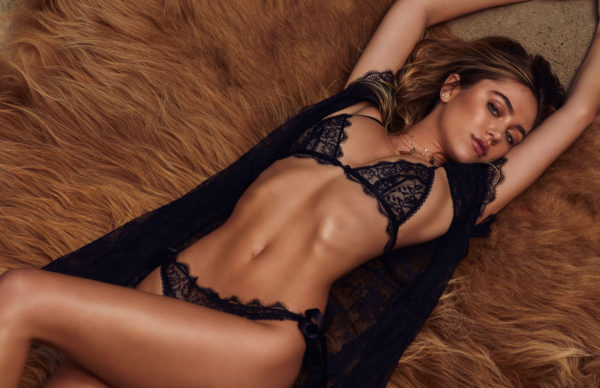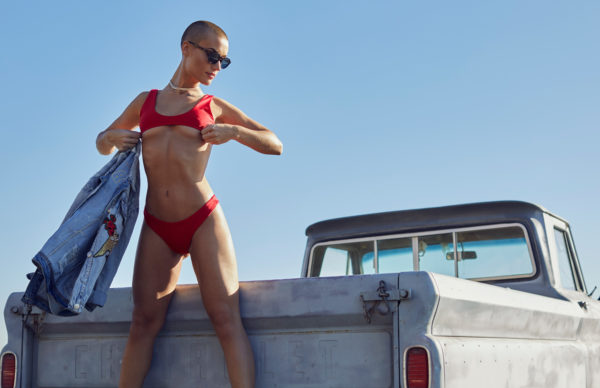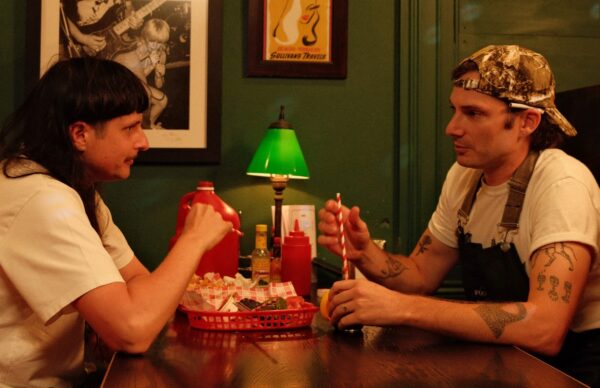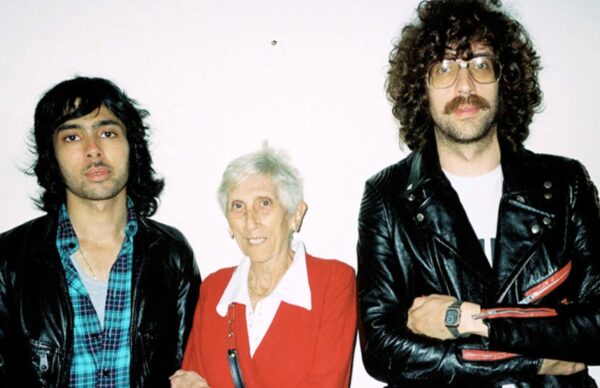We caught up with the British rap icon ahead of his return Down Under for Splendour 2019,
Looking back, it seems a little weird that The Streets AKA Mike Skinner had such early success in Australia to begin with, considering the musical climate of the early 2000s. US pop/r&b/rap artists like Shaggy, Eminem, Nelly Furtardo, and Outkast were dominating the mainstream charts whilst The Strokes, The Vines, The Hives etc, had anyone wearing skinny jeans in a twist. So how did a rapper from Britain’s Midlands even get his foot in the door of the Aussie youth music market?
The answer really lies in two attributes that The Streets had in spades. Firstly, the garage-based beats were inescapably catchy, the kind of tracks that you’d hear both on dancefloors and in smoke-filled living rooms around the country. Secondly, Skinner’s lyrics captured the energy of youth with a certain realness that was more accessible than the American bravado-soaked gangster rap of the time – even if we had no idea what the hell “mugging yourself” meant.
https://www.youtube.com/watch?v=nHs2sQOHX-0
In the years that followed The Streets further established their status in Australia, with 2004’s A Grand Don’t Come For Free and 2006’s The Hardest Way To Make An Easy Living both charting higher than Original Pirate Material. Slots at festivals like Big Day Out were treated more like parties in tiny clubs, rather than open-air performances to thousands of people, earning them legendary status with anyone who was in attendance – especially if you were a pill or two deep.
By 2011, Skinner called it quits on the project, stating to NME that “Maybe when I’m 40 and broke I might come back, but it all feels a bit pants really.” Spending the last eight or so years DJing and hosting club nights, as well as writing a movie, before releasing a much-lauded album under the moniker The Darker The Shadow The Brighter The Light, you couldn’t say the creative flame has ever extinguished.
So what’s happening with the return of The Streets? What does he think of their legacy? Who is Lee Satchell (the bastard)? Find out all this and more below and head here to get yourself tickets to The Streets Splendour sideshows:
https://www.youtube.com/watch?v=9Z4oePs3tkc
For many young people in Australia, The Streets albums first few albums are synonymous with a certain age. I still remember hearing ‘Irony Of It All’ as a14-year-old and thinking it was unlike anything on the radio at the time. I wonder how it feels to know that your music played a part in shaping people’s worldview?
I think that when you’re young, you can think of it like that. But actually, that’s not what’s happening. I think what’s happening is, they’re doing what they’re doing, and you just happen to be a part of it. I’m just one person. I think you see it more as a DJ. Naturally over the course of eight years or ten years you see songs become popular and then people sort of move on to other things.
I think when you’re young it feels like these songs are saving your life, but it’s the other way around, you’re saving the life of the song. Does that make sense? Because the song is really is nothing without the people to live their lives by it.
https://www.youtube.com/watch?v=EZx5OgKQNrA
There’s always been some really big philosophical ideas in your lyrics. I wonder if you’re aiming to make people think or if you’re if writing this is a way of figuring things out for yourself?
A lot of people think that they should get answers, like songs should have the answer, or a movie should have the answer and if you try to give people the answer, it’s not cool. It’s a different thing. And that’s what I’ve always tried to do, is to ask a question.
I mean, a good example is the ‘Irony Of The All’, because a lot of people were like, “oh that was great the way you shared, you know that weed was much better than alcohol”, and I always said to people “you know, actually, I drink alcohol, I don’t really smoke that much weed. I mean I do sometimes, but I drink a lot more alcohol than I smoke weed”. There was just some stuff there that I thought was interesting. But there’s no answer.
What’s been different about the return of the streets?
A lot of ways it felt the same, which was good. I was worried about what it would feel like after so long. It is a bit like riding a bike really, I hadn’t forgotten it. I hadn’t sung the songs or listened to them in nearly 10 years. I guess the shows are better, the musicians are incredible…everyone is better at doing the job really, because there’s a lot less personal issues and a lot more focusing on the thing.
I recently watched the live in Belgium video on youtube. And you seem to be nearly demanding of the audience. Why is this kind of interaction so important to you?
I have no idea. I honestly don’t plan anything really, I just sort of walk on there, but obviously, over the years, the way that you handle yourself on stage just becomes a habit. I guess certain things get a result. It’s the same with DJing, when you get yourself into a certain situation, with a certain type of crowd, at a certain point in the night, you can’t help but do the sort of things that worked before because they tend to work again. Apart from that, it does feel kind of random.
At that Belgium show, I was kind of coming through the crowd and someone grabbed onto me and wouldn’t let go, and so that sort of shaped the whole show really. When your adrenalin is up and you’re sort of trying to work out how to get to the next song, you’re not really acting rationally on stage, I’m sort of in a semi-panic really. But good things can come out of that.
You’ve been to Australia plenty of times, what do you look forward to coming here?
It’s always such a treat because it’s so expensive to do. That’s the reality is that you wish you could do it all the time. Each city has got its own flavor. Perth is the most remote city in the world…it reminds me of Aberdeen in Scotland, but obviously with really good weather. And then, obviously Sydney is a tiny bit more like, America. Melbourne is a tiny bit more like, Europe.
Adelaide is… what can I say about Adelaide? We have a lot of these shows in the U.K where people try to get people to swap their house for a house in Adelaide. Adelaide is probably the place that looks the most like Australia, it’s like what people think Australia is like even though it’s kind of not, you know.
https://www.youtube.com/watch?v=a4JLu50mlgw
Lastly, I have a couple of questions about The Streets mythology: I’ve also always wondered who Lee Satchell is? And, there were rumours that you can your mum yelling out in the background in one of the ‘Original Pirate Material’ track. Is that true?
Yeah, they’re both true. Lee Satchel is Calvin’s brother. Calvin’s, the guy on ‘Don’t Mug Yourself’ – his brother is Lee Satchel. And on Turn The Page when I solo the vocal, yeah, you can hear my mum calling me.
That’s crazy…
I think it felt crazy back then but it’s pretty common now. I worked with a lot of rappers, I still produce bits and we’ve been doing club nights and stuff, and that’s kind of what people do, isn’t it? They sort of record stuff in their mum’s house, and then they pretend they don’t – but they do.
